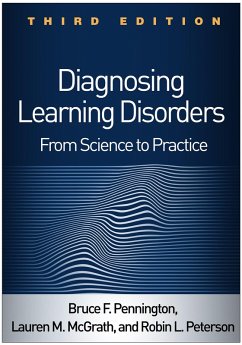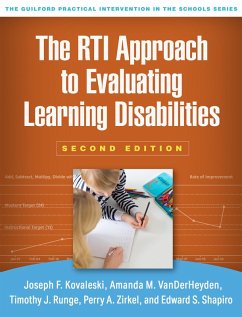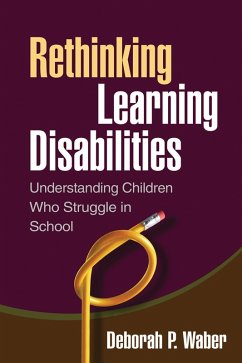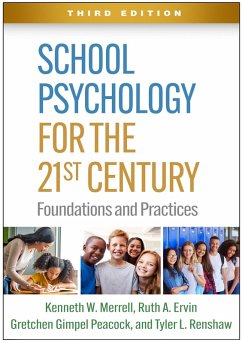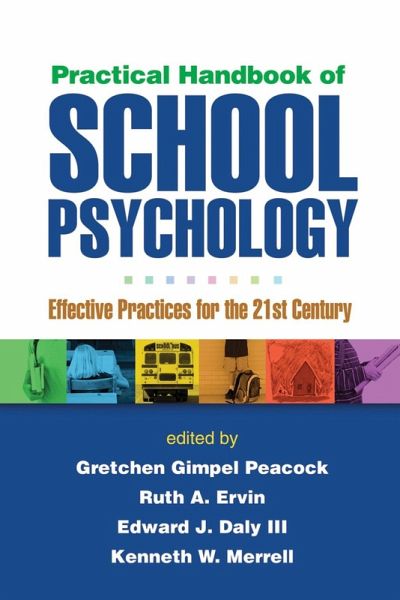
Practical Handbook of School Psychology (eBook, ePUB)
Effective Practices for the 21st Century
Redaktion: Gimpel Peacock, Gretchen; Merrell, Kenneth W.; Daly, Edward J.; Ervin, Ruth A.
Versandkostenfrei!
Sofort per Download lieferbar
51,95 €
inkl. MwSt.
Weitere Ausgaben:

PAYBACK Punkte
26 °P sammeln!
This authoritative guide addresses all aspects of school psychology practice in a response-to-intervention (RTI) framework. Thirty-four focused chapters present effective methods for problem-solving-based assessment, instruction, and intervention. Specific guidelines are provided for promoting success in core academic domains--reading, writing, and math--and supporting students' positive behavior and social-emotional functioning. The book also describes ways to team with teachers and parents to develop collaborative solutions and overcome obstacles. Grounded in research, this is an indispensab...
This authoritative guide addresses all aspects of school psychology practice in a response-to-intervention (RTI) framework. Thirty-four focused chapters present effective methods for problem-solving-based assessment, instruction, and intervention. Specific guidelines are provided for promoting success in core academic domains--reading, writing, and math--and supporting students' positive behavior and social-emotional functioning. The book also describes ways to team with teachers and parents to develop collaborative solutions and overcome obstacles. Grounded in research, this is an indispensable resource for daily practice and an invaluable text for school psychology training programs.
Dieser Download kann aus rechtlichen Gründen nur mit Rechnungsadresse in A, D ausgeliefert werden.




